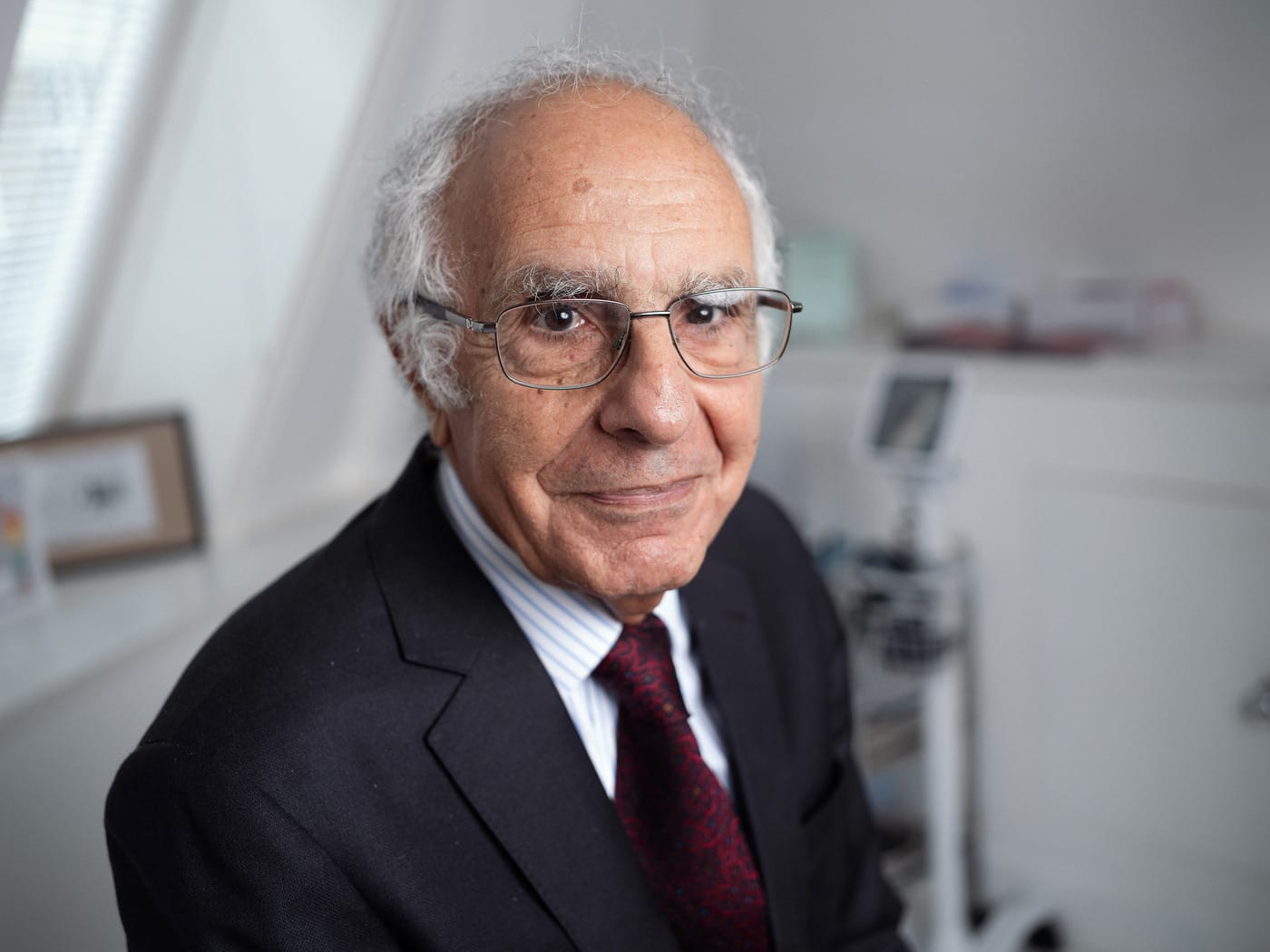London Medical Cardiology
Heart block
London Medical’s Cardiology Clinic provides the most up-to-date investigative cardiac procedures for patients with heart problems – and some of the UK’s most renowned cardiologists hold clinics here for all aspects of heart disease.
Heart block is a cardiovascular condition that affects your heart’s rhythm and slows its rate. There are different types of heart block, including atrioventricular (AV) heart block.
At London Medical, we understand how heart block impacts your health. So, prioritising your cardiovascular health, knowing what your symptoms could mean and how doctors diagnose the condition can help you put your needs first.
What is heart block?
Heart block causes your heart to beat slowly or with an abnormal rhythm. There are different stages of heart block, some of which are more serious than others.
Heart block occurs when the flow of electrical impulses is delayed or blocked on its pathway, causing the rate and beat of your heart to change.
Some people are born with heart block, which is called congenital heart block. Babies can be more likely to have congenital heart block if their mother has autoimmune conditions such as lupus or if they are born with a heart defect. However, heart block typically happens when you are older, known as acquired heart block.
Heart block types
There are two main types of heart block that you can develop — AV heart block and bundle branch block.
Atrioventricular (AV) heart block
AV heart block can delay the electrical impulses that control your heartbeat or block them when travelling between the heart’s upper and lower chambers.
AV heart block is categorised in three different ‘degrees’, depending on severity.
First-degree AV heart block typically doesn’t cause any noticeable symptoms. Generally, you’d find out you have first-degree AV heart block following a test for it or a test for a different medical condition.
Second-degree AV heart block has two types — Mobitz type 1 and Mobitz type 2. Mobitz type 1 is the less serious type of second-degree AV heart block, and you may have mild symptoms. With Mobitz type 2, you may experience more severe symptoms. If you have Mobitz type 2, specialists often provide treatment.
Third-degree AV heart block or complete heart block requires treatment and your symptoms can be life-threatening if left untreated.
Bundle branch block
A bundle branch block is where there is a delay or blockage in your electrical pathways that carry the impulse through your heart’s ventricles. This delay doesn’t usually cause symptoms, but it depends on your type.
A left bundle branch block may indicate an underlying heart condition and we can see it on an electrocardiogram. A right bundle branch block can occur even if you don’t have an underlying heart condition.
Heart block symptoms
The symptoms of heart block will depend on the type of heart block you have.
Symptoms of AV heart block
Symptoms of AV heart block will differ depending on your degree of heart block.
First-degree AV heart block typically doesn’t cause any noticeable symptoms. However, symptoms of second-degree AV heart block with Mobitz type 1 can include:
- Light-headedness
- Dizziness
- Fainting
Symptoms of second-degree AV heart block with Mobitz type 2 include:
- Chest pain
- Shortness of breath
- Sudden dizziness when standing up from lying down or sitting due to low blood pressure
- Fainting
Symptoms of third-degree AV heart block can include:
- Feeling faint or fainting
- Shortness of breath
- Extreme tiredness, sometimes accompanied by confusion
- Chest pain
If your symptoms become severe or rapidly worsen, you must call 999 immediately. These symptoms can be life-threatening.
Symptoms of bundle branch block
Bundle branch block does not usually cause any symptoms, but you may experience symptoms if your branch block is caused by an underlying health condition.
Possible symptoms of bundle branch block include:
- Dizziness
- Fainting
Causes of heart block
Heart block can have many different causes. The most common causes of heart block can include:
- Heart attack – the most typical cause of heart block. A heart attack damages your heart’s electrical system, disrupting the electrical impulses
- Cardiomyopathy – certain diseases of your heart muscles, like cardiomyopathy, can affect your heart’s ability to conduct electrical signals properly, leading to heart block
- Heart valve diseases – problems with your heart’s valves can lead to the condition
- Heart surgery — damage to your heart’s electrical pathways during open-heart surgery can cause heart block
- Medications – certain medications can affect your heart’s electrical activity, eventually leading to heart block. Medicines that cause heart block can include antianginal, antiarrhythmic and heart failure medications
- Other medical conditions – certain conditions like Lyme disease can impact your electrical signals and contribute to heart block’s development
Heart block tests
Unless you are experiencing symptoms, heart block isn’t often diagnosed on its own. Typically, a doctor will diagnose a heart block for a different condition.
However, some tests, such as an electrocardiogram (ECG), can detect heart block. This test measures your heart’s electrical activity by placing electrodes on your arms, chest and legs. The data will show any abnormalities in your heart rate that indicate a heart block.
We offer electrocardiograms to test and diagnose heart block. Our expert cardiologists are there to support you throughout your diagnosis and beyond.
Heart block treatment
Heart block is generally only treated if it is causing symptoms. Depending on the cause and symptoms you are experiencing, we may fit a pacemaker to help. The consultant fits this small device into your chest through a surgical procedure. The pacemaker sends electrical pulses to your heart to help regulate it.
If medications are causing your heart block, we may slowly withdraw you from them or place you on a different medication that doesn’t cause this condition.
At London Medical, we offer treatment for heart block so you can keep your cardiovascular health in check.
Get in touch with London Medical
If you are concerned about the health of your heart or believe you may have heart block, contact our supportive team today. Our expert cardiology team can diagnose and treat numerous conditions, including heart block.
Don’t put your health on hold. Prioritise your heart health with London Medical.
Our Consultants
Professor Thomas F. Lüscher
Consultant in cardiology, interested in interventional cardiology, rhythmology, echocardiography, heart failure, acute cardiac care, and sports cardiology.
Professor Carlo Di Mario
Specialist in Interventional cardiology – the use of catheters and other devices to restore blood flow to the heart without major surgery.
Protected: Dr Simon Woldman
There is no excerpt because this is a protected post.
Dr George Amin-Youssef
Consultant cardiologist who deals with adults only and specialises in heart failure.
Dr Fadi Jouhra
Consultant cardiologist who specialises in complex cardiac devices and heart failure.
Dr Ralph Abraham
As a founder of London Medical, Dr Ralph Abraham specialises in diabetes, weight management, endocrinology and cholesterol
Professor Kausik Ray
One of the most pre-eminent preventative cardiologists in the world.
Dr Catherine Lunken
Specialist in seeing patients with all types of diabetes using up to date technology. Dr Lunken also sees patients with inherited lipid disorders and those with statin intolerances.
Our Cardiology specialties
We offer care across a broad range of cardiology specialties. We have some of the top specialists in every aspect of cardiac care. Our entire team is dedicated to working together to consider the results of your investigations, your health and your lifestyle before tailoring a treatment plan to your individual needs.
Our Locations
London Medical is located in the Harley Street medical area. Together with top experts across a range of multi-disciplinary fields, we offer the finest facilities for your care, all under one roof.
Monday to Friday 8.30am to 8pm
Monday to Friday 8.30am to 8pm
Monday to Friday 8.30am to 8pm
Speak to a member of our team
Contact the appointments team
For private GP appointments, please book
Make an enquiry online using this form and one of our team will be in touch. By using this form you agree with the storage and handling of your data by our team. Alternatively, you can contact us.
You don't need a referral from your GP to make an appointment with us.
Please note, we require this information as part of our registration process.
Heart Health News
Find out the latest news, thinking and insights from our experts. Our Heart Health News is your go-to source of trusted advice and knowledge on all matters of the heart.











